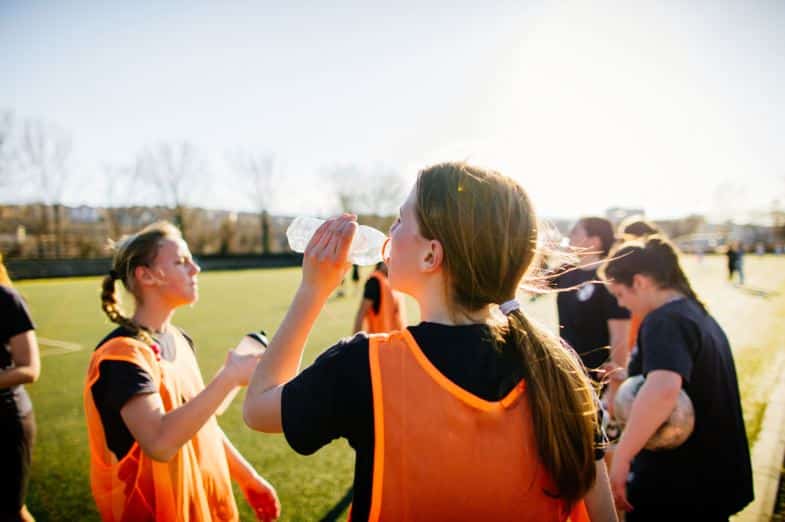Developing a heat-related illness is one of the biggest hazards for children, especially those who participate in sports and other activities in extreme heat. As August temperatures rise here in Central Texas, so does the risk of developing heat exhaustion and heat stroke. You know heatstroke and heat exhaustion are threats to your child, but do you understand the difference?
Heat exhaustion is a moderately severe condition caused by exercising or playing in a hot, humid environment. The symptoms of heat exhaustion include heavy sweating, paleness, cool skin, muscle aches, extreme tiredness and weakness, dizziness and headache. If you believe your child is experiencing heat exhaustion, stop all activity, get them to a cool spot and have them drink cool water or a sports drink containing electrolytes. If the symptoms worsen, or do not improve within one hour, seek help from a medical professional right away.
If left untreated, heat exhaustion can lead to heat stroke.
Heat stroke, the most severe form of heat injury, is a life-threatening condition. This type of heat-related illness occurs when the body’s temperature rises and is unable to cool itself down. The symptoms of heat stroke include an elevated body temperature (above 103°F), hot and dry skin (no sweating), loss of consciousness, rapid pulse and nausea or vomiting. If your child is experiencing heatstroke, seek immediate medical attention or call 911 and ask to be taken to the Emergency Room at Seton Medical Center Harker Heights.
While waiting for medical attention, move the victim to a shaded area or indoors and cool the body down by spraying or sponging with cool water and fanning. Do not give the child fluids.
Preventing heat-related illness
Drinking plenty of water before, during and after a practice or game is one of the easiest ways to prevent any heat-related illness. Constantly remind children the importance of staying hydrated.
Practicing or training in an air-conditioned gym is much different than training outdoors in the heat of summer. Heat acclimation is recommended, especially for children participating in a sport or activity that will take place during the warmer months. Encourage your child to lightly train outside prior to the start of the season.
Catching the symptoms of heat-related illness early can help prevent a child’s condition from progressing to heatstroke. That is why it’s extremely important for everybody — especially parents on the sidelines watching their children participate — to have some information regarding heat-related illness. If a child does not recover quickly from a heat-related illness, seek medical treatment promptly.

